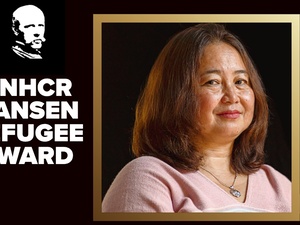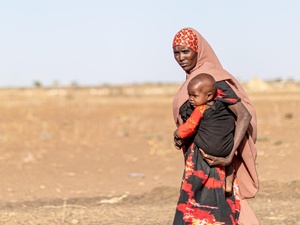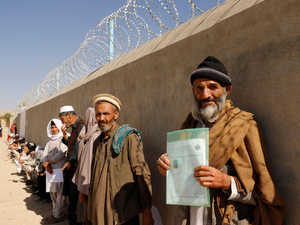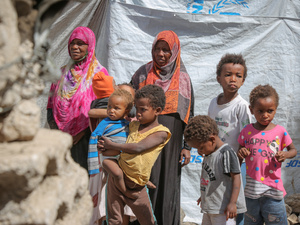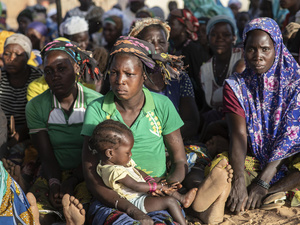UNHCR concerned about situation in Yemen as more civilians displaced
UNHCR concerned about situation in Yemen as more civilians displaced

A scene in Al Mazraq camp, where some 2,000 new arrivals have been recorded in recent days.
GENEVA, November 10 (UNHCR) - The UN refugee agency on Tuesday said it was extremely concerned about a recent escalation of the conflict in northern Yemen and its impact on the civilian population.
"We again appeal for the protection of civilians and secure and unhindered access for humanitarian workers to deliver much needed assistance," UNHCR spokesman, Andrej Mahecic, told journalists in Geneva.
A growing number of forcibly displaced families from the embattled Sa'ada governorate have been arriving at Al Mazrak camp in Hajja governorate to the south-west in recent days. "On average, 130 to 140 families arrived at Al Mazrak camp both on Saturday and Sunday, and another 80 families yesterday - in total some 2,000 people," Mahecic said.
Elderly people, single mothers and children represent the majority of the new arrivals. Most of them first fled to other areas, where they had taken refuge after fleeing fighting in Sa'ada governorate between government troops and rival Al Houthi forces.
Some have been displaced two or three times. The Al Mazrak camp, now hosting some 8,700 internally displaced people (IDPs), has been reorganized and extended to accommodate the new arrivals. Another 11,000 IDPs are sheltered by host families and communities in this part of Yemen.
At the weekend, UNHCR airlifted emergency relief items from the agency's emergency stockpile in Dubai. The Ilyushin-76 aircraft landed in the Yemeni capital of Sana'a on Saturday carrying large tents and portable warehouses that will improve the delivery of aid and services to the people in need.
"The tents will allow IDP community centres to be set up in various locations - including a centre for women in Al Mazrak camp," Mahecic said, adding that the warehouses would enhance UNHCR storage and capacity distribution in the operation. The so-called rubhalls can also be used as community centres.
Meanwhile, the Saudi authorities on Monday informed UNHCR that the situation at the Alp border crossing in northern Yemen was stable, allowing the refugee agency to resume its cross-border activities. "We are hopeful that we will receive the security clearances from the Saudi authorities for the next aid convoy in the coming days. UNHCR's assistance will complement the Yemeni government's food and aid also arriving in the area," Mahecic noted.
The number of internally displaced people in northern Yemen is now estimated to stand at 175,400, including those displaced in earlier conflict since 2004.
Marie Marullaz in Sana'a, Aden contributed to this article


